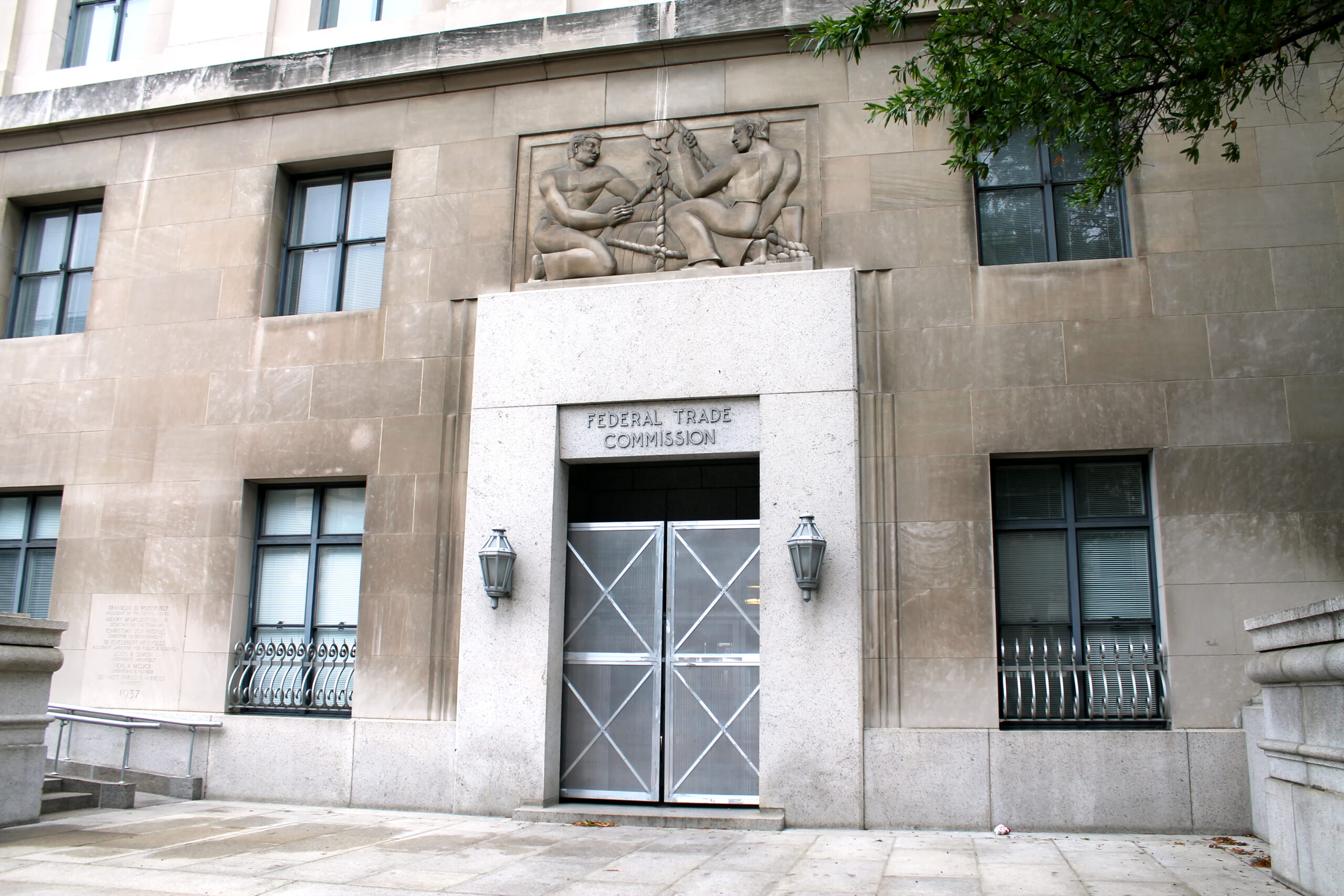“Such a proposal fails to recognize that noncompete agreements can serve vital procompetitive business and individual interests—such as protecting investments in research and development, promoting workforce training, and reducing free-riding.” –U.S. Chamber comments
 In January of this year, the Federal Trade Commission (FTC) proposed a new rule that would ban employers from using noncompete clauses for their employees. In an announcement, the FTC said that the use of noncompete clauses is “a widespread and often exploitative practice that suppresses wages, hampers innovation, and blocks entrepreneurs from starting new businesses.” The agency estimated the new rule could increase wages by $300 billion a year, as firms would be encouraged to do more to keep their workers.
In January of this year, the Federal Trade Commission (FTC) proposed a new rule that would ban employers from using noncompete clauses for their employees. In an announcement, the FTC said that the use of noncompete clauses is “a widespread and often exploitative practice that suppresses wages, hampers innovation, and blocks entrepreneurs from starting new businesses.” The agency estimated the new rule could increase wages by $300 billion a year, as firms would be encouraged to do more to keep their workers.
The proposed rule change was opened for public comment in January, and the deadline for submissions was extended from March 20 to April 19 in early March. As of April 18, the Regulations.gov website indicated that 24,259 comments had been received and 14,946 posted.
With the comment period coming to a close this week, the U.S. Chamber of Commerce has weighed in, urging April Tabor, FTC Secretary to withdraw the proposed rule. The letter was signed by Sean Heather, Senior Vice President of International Regulatory Affairs and Antitrust at the U.S. Chamber of Commerce.
“Such a proposal fails to recognize that noncompete agreements can serve vital procompetitive business and individual interests—such as protecting investments in research and development, promoting workforce training, and reducing free-riding—that cannot be adequately protected through other mechanisms such as trade-secret suits or nondisclosure agreements,” Heather wrote.
Does the FTC Have Authority?
The U.S. Chamber of Commerce cited three reasons that it opposes the FTC’s proposed noncompete ban.
First, the group contests the FTC’s authorization to enforce binding regulations related to “unfair methods of competition” under the Federal Trade Commission Act. While the FTC cited rulemaking authority for the proposed rule under Section 6(g) of the Act, the U.S. Chamber of Commerce argued it only “grants the Commission the narrow authority to develop internal procedural rules related to its powers to investigate suspected violations of the law and to publish reports… [and] does not empower the Commission to issue sweeping substantive regulations that bind private parties.”
The U.S. Chamber characterized section 6(g) of 15 U.S. Code § 46 as narrow. But the FTC cited this section, in addition to 15 U.S.C. 45, as giving it rulemaking authority to: “[f]rom time to time classify corporations and… to make rules and regulations for the purpose of carrying out the provisions of this subchapter.”
But the Chamber noted that “Section 6(g) says nothing whatsoever about unfair methods of competition or any other substantive authority of the Commission.”
Unfair Methods of Competition
Unfair methods of competition are cited in 15 U.S.C. 45, referred to by the Chamber of Commerce as Section 5. This section gives the FTC the power to prevent people and corporations “from using unfair methods of competition.”
This leads to The Chamber’s second reason that it opposes the noncompete ban, namely that it contests the FTC’s categorization of noncompete clauses as unfair. The submission argued, “[unfair methods of competition] cannot be read to include all worker noncompete agreements.”
Citing federal court cases which it argued recognize the procompetitive benefits of noncompete clauses, the Chamber said it takes specific issue with the FTC’s November 10, 2022 Policy Statement, which cited 12 Supreme Court cases that it argued give the FTC extended purview to decide what is an unfair method of competition.
In the Policy Statement, the FTC said, “This statement is intended to assist the public, business community, and antitrust practitioners by laying out the key general principles that apply to whether business practices constitute unfair methods of competition under Section 5 of the FTC Act.”
However, the Chamber of Commerce argued, “history, precedent, and ordinary tools of statutory interpretation undercut the Commission’s view that worker noncompetes are categorically “unfair.”
The lobbying group is also concerned that the noncompete ban would retroactively apply to existing contracts. While the FTC has said the rule would not apply retroactively, the Chamber of Commerce argued the ban would allow employees to ignore existing noncompete clauses.
Poor Reasoning
While the Chamber contested the FTC’s authority to implement the proposed noncompete ban, the final reason it opposes the ban extends beyond authority. The lobbying group argued the proposed ban is poorly reasoned, thus breaking the Administrative Procedure Act.
Heather wrote, “even if the Commission had the legal authority to issue a rule outlawing noncompete agreements, the Administrative Procedure Act requires that it do so only as the result of a thorough and well-reasoned decision-making process.”
The Chamber of Commerce cited five reasons why the FTC has yet failed to meet this standard. Firstly, the advocacy group believes that the FTC has underestimated the economic costs of the proposal because it has ignored businesses’ justifications for noncompete clauses. Additionally, it also argued that the FTC has overestimated the benefits of its noncompete clause ban.
The final three reasons cited by the Chamber of Commerce are the FTC’s failure to justify the breadth of the rule, noncompliance with the Regulatory Flexibility Act, and finally, the proposal conflicts with other federal laws.
In its announcement of the proposed rule, the FTC estimated one in five workers in the United States is bound by a noncompete clause. It also predicted the ban would save U.S. workers between $250 billion and $296 billion per year. On these issues, the Chamber of Commerce said the FTC is relying on “stale or limited data, without accounting for recent legal developments or contrary research.”
For these three reasons, the Chamber of Commerce asked the FTC to abandon the proposal. But if it continues forward with the rule, the Chamber argued that it should be “substantially revised.” Here, the Chamber proposed several alternatives that would significantly reduce the rule’s power. The alternatives include focusing on “unfair and deceptive acts and practices” to ensure employees are better informed about noncompete clauses and a variety of amendments to protect some form of noncompete agreements.
Image Source: Deposit Photos
Image ID: 403795620
Author: [email protected]

![[IPWatchdog Logo]](https://ipwatchdog.com/wp-content/themes/IPWatchdog%20-%202023/assets/images/temp/logo-small@2x.png)

![[Advertisement]](https://ipwatchdog.com/wp-content/uploads/2024/04/Patent-Litigation-Masters-2024-sidebar-early-bird-ends-Apr-21-last-chance-700x500-1.jpg)

![[Advertisement]](https://ipwatchdog.com/wp-content/uploads/2021/12/WEBINAR-336-x-280-px.png)
![[Advertisement]](https://ipwatchdog.com/wp-content/uploads/2021/12/2021-Patent-Practice-on-Demand-recorded-Feb-2021-336-x-280.jpg)
![[Advertisement]](https://ipwatchdog.com/wp-content/uploads/2021/12/Ad-4-The-Invent-Patent-System™.png)







Join the Discussion
No comments yet.